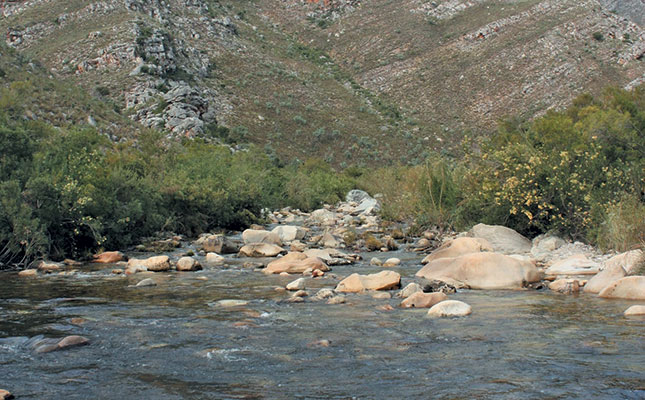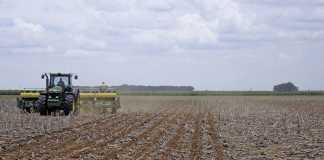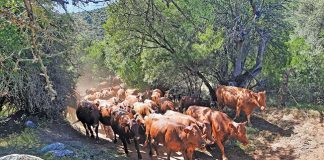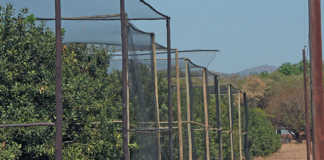
Photo: Denene Erasmus
You are the team leader of a research project that will look at the way in which the water-energy-food nexus affects the well-being of individuals and communities in different parts of the country. What exactly is this nexus?
It is a framework that emerged from the realisation that a more integrated approach was needed to manage scarce natural resources.
Instead of only looking at the carbon or water footprint of an individual, farm or community, the nexus framework looks holistically at water security, energy security and food security, and how allocation, access and usage in one of these sectors affect either one or both of the others. This frequently requires difficult trade-offs.
Please give an example.
The drought in the Western Cape has resulted in various interventions to save water, with water restrictions having a decimating impact on agricultural output, farm income, farmworkers and rural economies.
With growing demand and climate change putting more and more pressure on the province’s water resources, policies to improve water-use efficiencies would have to be carefully designed and controlled to alleviate the impact on agricultural production. As a water-scarce country, this also holds true for the rest of South Africa.
Interventions in the water sector have implications for energy usage and sometimes for energy supply, for example hydropower generation.
How does this apply to farm level?
A farmer might only need a little water to produce enough food to keep a household going. To gain access to a market, the farmer would have to increase production, which would result in a higher energy and water demand.
The energy demand increases because the farmer would have to pump water, use more fertilisers, cool the produce and transport the food to the market.
What exactly do you define as water, food and energy?
Water typically refers to all water resources, from rain to surface, borehole or grey water, while energy refers to the full spectrum, ranging from fossil fuels to biofuels and renewable sources.
Food security used to only look at output, but has become more broadly defined to also consider the value of output and the role of consumer preferences and nutrition. The global fad for quinoa, for example, is resulting in poor South Americans, who traditionally consumed this as a staple food, no longer being able to afford this product.
Please elaborate on your water-energy-food research.
The African Climate and Development Initiative of the University of Cape Town has partnered with the Risk and Vulnerability Assessment Centre at the University of Fort Hare and the Centre for Water Resources Research, School for Agricultural, Earth and Environmental Sciences at the University of KwaZulu-Natal, in a three-year project funded by the Water Research Commission (WRC).
The project will look at the way in which the nexus affects livelihoods and the well-being of communities in Pniel and Laaiplek in the Berg River catchment in the











